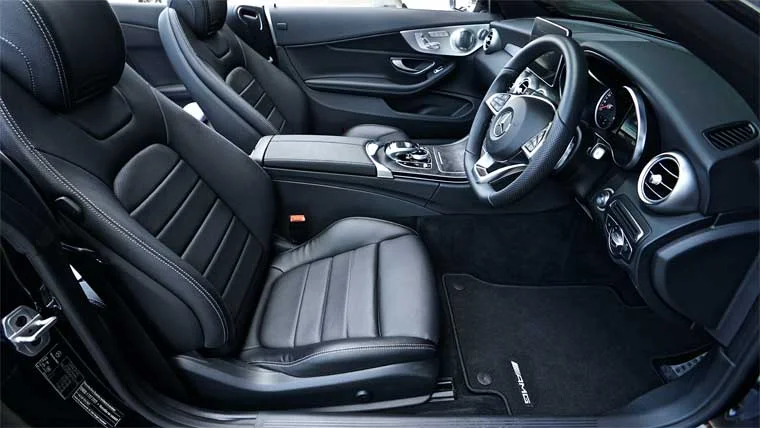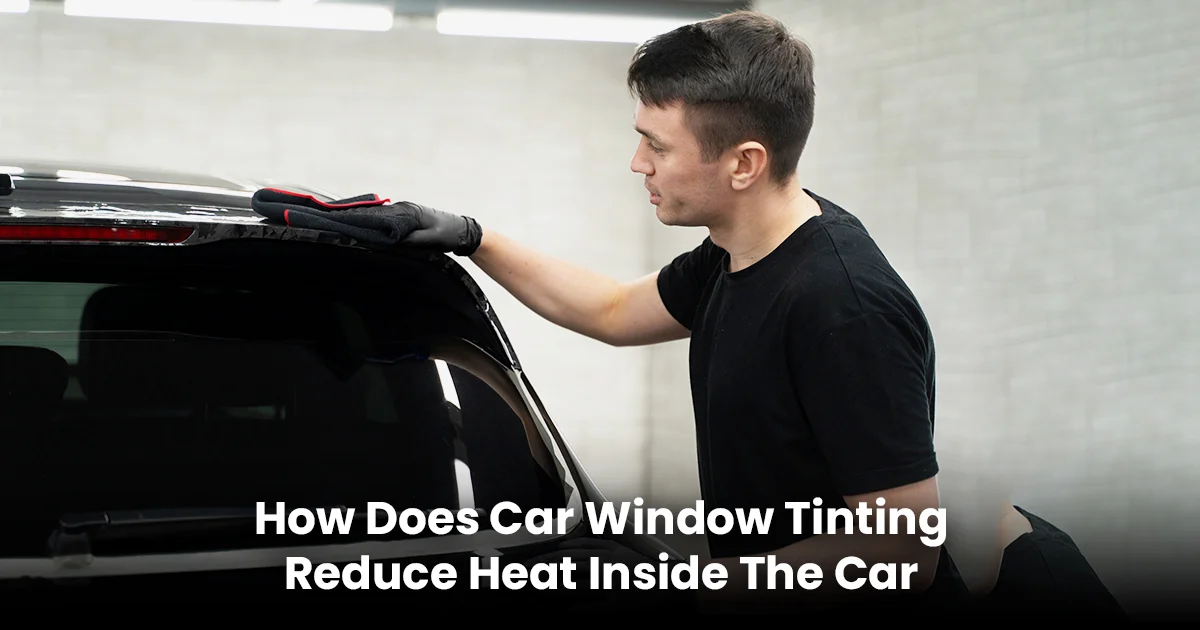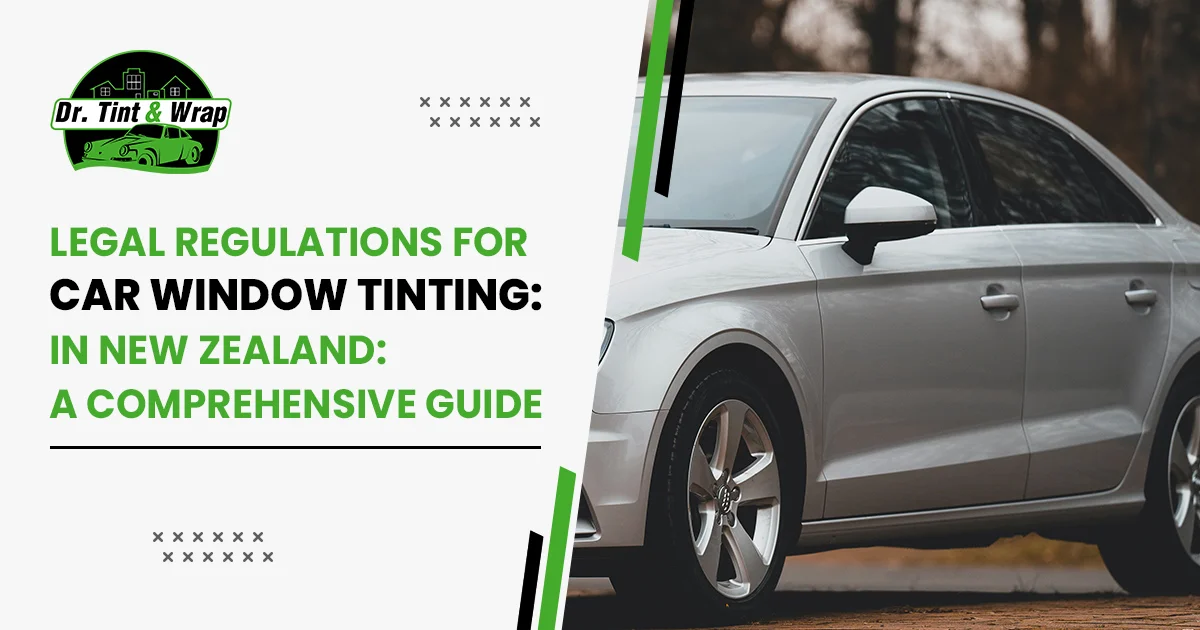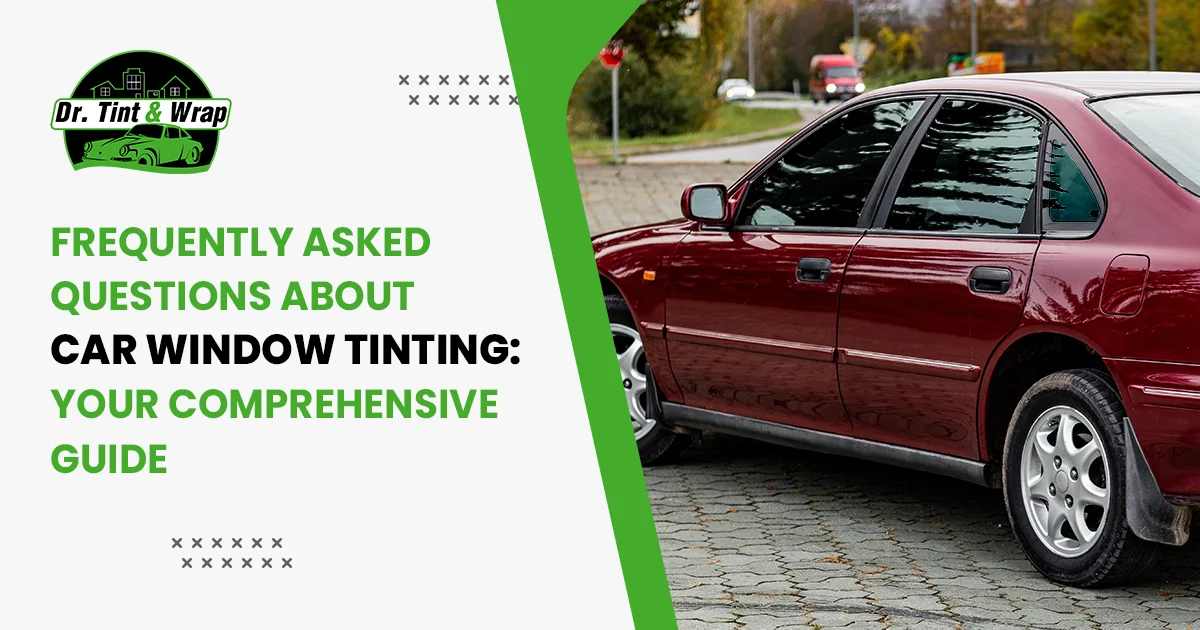
Car Window Tinting: A Boon for Leather Upholstery
14 Oct 2020, By AdminThe privacy and elegance that comes with tinting your car is priceless in the times where every step was taken in life is scrutinized and seen by everyone. So, while driving, it is always good to have your thoughts and your time to yourself, isn’t it? Along with the added benefit of privacy, tinted windows also help in protecting the interiors of the car. The investment that goes into the luxury of leather seats is something that one is acutely aware of. Now the sun is no friend to leather seats and can easily shorten the life of the seats. Discoloring them, causing cracks to appear or have the color fade, making them look worn
out.
One of the ways in which tinting your car’s windows is the protection it will provide to the elegant leather seats. Tinting windows can help control the harsh rays of the sun and also lessen how much the car heats up as well. Along with the rays of the sun, the harmful ultraviolet rays can be controlled with the power of tinting does right. Because of UV exposure, the car’s interiors can tend to get damaged.
With leather seats, the continued UV rays can cause the natural oil in the leather to dry out which causes unsightly stains. Along with UV rays and the rays of the sun, heat can also a lot of damage to leather seats. Without the added benefit of tinted windows, the heat trapped inside cars causes the leather to age faster.
Tinted windows can help keep the car cooler by creating a dark barrier between the sun and the leather seats of the car. Another problem that can worsen the impact of ultraviolet rays is any liquid or food that can fall on the leather seats with combines with these rays and can damage the upholstery of the car.
The right tint on your car windows can make all the difference to the look of your car. By making sure that the tinting has been done exceptionally can lengthen the life of the leather upholstery as well. One should always make sure that the window tinting on the cars should always be done by a professional. If not done properly, it can cause bubbles to appear in the film and also hinder sight while driving.
So, book your tinting consultation with Dr. Tint today!

How Does Car Window Tinting Reduce Heat Inside The Car
14 Oct 2020, By AdminCar window tinting has become increasingly popular among car owners in recent years. This process involves applying a thin, transparent film to the windows of a car, which helps to reduce the amount of heat that enters the vehicle. But how does car window tinting actually work to reduce heat inside the car? In this blog, we'll explore the science behind car window tinting and its effects on reducing heat inside the car.
Tinting films block the sun's rays
Car window tinting works by blocking the sun's rays from entering the car. The film is designed to absorb or reflect the sun's radiation, which is responsible for the heat that builds up inside the vehicle. By reducing the amount of sunlight that enters the car, the tinting film helps to keep the temperature inside the car more comfortable.
Tinting films reduce the amount of visible light that enters the car
In addition to reducing the amount of sunlight that enters the car, car window tinting also reduces the amount of visible light that enters the car. This helps to reduce glare, which can be a major problem for drivers, especially during the day when the sun is bright. By reducing glare, car window tinting makes it easier for drivers to see the road ahead, which can help to prevent accidents.
Tinting films can block up to 99% of UV radiation
Car window tinting films are also designed to block up to 99% of the sun's ultraviolet (UV) radiation. UV radiation can be harmful to both the skin and the interior of a car. Over time, exposure to UV radiation can cause the dashboard and other parts of the car's interior to fade and crack. By blocking UV radiation, car window tinting helps to protect the car's interior and keep it looking new for longer.
Tinting films reduce the need for air conditioning
Because car window tinting helps to reduce the amount of heat that enters the car, it can also help to reduce the need for air conditioning. This not only saves fuel, but it can also help to reduce the wear and tear on the car's air conditioning system, which can extend its lifespan.
In conclusion, car window tinting works by blocking the sun's rays, reducing the amount of visible light that enters the car, blocking up to 99% of UV radiation, and reducing the need for air conditioning. Doing so helps to keep the temperature inside the car more comfortable, protect the car's interior, and improve the safety of drivers on the road. If you're considering getting your car windows tinted, make sure to choose a reputable provider who can help you choose the right type of tinting film for your needs.

Legal Regulations for Car Window Tinting in New Zealand: A Comprehensive Guide
14 Oct 2020, By AdminCar window tinting has become a popular choice for vehicle owners in New Zealand, offering benefits such as privacy, UV protection, and heat reduction. However, it’s crucial to understand and adhere to the legal regulations surrounding window tinting to avoid fines and ensure road safety. In this blog post, we will explore the laws regarding window tinting in New Zealand and provide essential tips for staying within legal limits.
Understanding New Zealand's Window Tinting Regulations
1. Light Transmission: According to New Zealand law, the front windscreen must have a minimum of 70% light transmission, while the front side windows (the windows adjacent to the driver and front passenger) must have a minimum of 35% light transmission.
2. Rear Windows: There are no specific regulations regarding the tint darkness for rear windows, but it is recommended to maintain good visibility, especially at night.
3. Reflectivity: Window tints must not be highly reflective to the extent that they impair the driver’s vision or distract other drivers.
4. Tinting Film Quality: The tinting film used must be of high quality and not damaged or discolored, ensuring clear visibility.
Tips for Staying Within Legal Limits
1. Choose Professional Installation: Opt for professional window tinting services. Experienced technicians are aware of the legal limits and can ensure your tinting complies with the regulations.
2. Ask for Legal Tints: When getting your windows tinted, clearly specify to the service provider that you need tints that comply with New Zealand regulations. Reputable providers will use films that meet legal standards.
3. Avoid DIY Tinting Kits: Do not attempt to tint your windows using DIY kits unless you are confident about adhering to legal limits. Incorrect installation can result in darker tints, leading to legal consequences.
4. Regularly Check Tint Condition: Over time, window tints can deteriorate, becoming darker or developing bubbles. Regularly inspect your tints and replace them if they no longer meet the legal standards.
5. Educate Yourself: Familiarize yourself with the local regulations. Understanding the legal limits will help you make informed decisions about your vehicle’s window tinting.
Responsible vehicle ownership includes complying with legal regulations to ensure road safety and avoid legal issues. By adhering to New Zealand’s window tinting laws and following the tips mentioned in this guide, you can enjoy the benefits of window tinting while staying within the boundaries of the law. Remember, when in doubt, consult professionals who can guide you in choosing the right window tints that meet both your needs and legal requirements. Safe driving starts with clear visibility, so let’s tint responsibly and enjoy the many advantages it offers within the legal limits of New Zealand.

Frequently Asked Questions about Car Window Tinting: Your Comprehensive Guide
14 Oct 2020, By AdminCar window tinting has become increasingly popular for its numerous benefits, from enhancing privacy and aesthetics to protecting against harmful UV rays. However, with its rising popularity, there come several questions. In this blog post, we'll address some of the most common queries people have about car window tinting, providing accurate and informative answers to help you make an informed decision.
1.Why should I tint my car windows?
Car window tinting offers several benefits, including UV protection, heat reduction, glare reduction, enhanced privacy, and safeguarding your vehicle's interior from fading. It also adds to the overall aesthetics of your car.
2. Is car window tinting legal?
Yes, but the legal limits vary by state and country. It’s crucial to check local regulations. Most places have restrictions on how much visible light can pass through the tint. Professional tinting services are typically aware of local laws and ensure your tinting adheres to these regulations.
3. Can window tinting prevent my skin from getting damaged by UV rays?
Yes, quality window tints block a significant amount of UV rays, reducing your exposure and minimizing the risk of skin damage. This protection is especially important for people who spend a lot of time driving.
4. Does window tinting interfere with visibility, especially at night?
When professionally installed, window tints should not interfere with visibility, both during the day and at night. It’s essential to choose an appropriate tint shade and have it installed correctly to ensure clear visibility.
5. How long does the tinting process take?
The time taken to tint your car windows depends on the type of vehicle and the complexity of the job. On average, it takes a professional installer a few hours to complete the process. However, this can vary, so it’s best to check with the service provider.
6. Can I wash my car immediately after tinting?
No, you should wait a few days before washing your car after window tinting. This allows the adhesive to cure completely, ensuring the tint adheres properly to the glass. Follow the specific guidelines provided by the tinting professional for the best results.
7. How long will window tinting last?
The lifespan of window tinting varies based on the quality of the tint and the installation. High-quality tints, when professionally installed, can last between 10 to 15 years. Regular maintenance and cleaning also play a role in prolonging the tint’s life.
8. Can I tint my windows myself with a DIY kit?
While DIY kits are available, professional installation is recommended for the best results. Professional installers have the expertise and tools to ensure the tint is applied evenly and without bubbles or imperfections. DIY tinting can often result in subpar outcomes.
9. Will window tinting interfere with my car's electronics or radio signals?
No, high-quality window tints do not interfere with your car’s electronics or radio signals. Modern window films are designed to be non-conductive and won’t disrupt your vehicle's electrical systems.
10. How do I maintain my tinted windows?
Maintaining tinted windows is relatively easy. Clean them with a mild, non-ammonia-based cleaner and a soft cloth. Avoid using abrasive materials that could scratch the surface. Regular cleaning helps maintain the tint's appearance and longevity. In conclusion, car window tinting is a practical and valuable investment for your vehicle. By understanding the process and benefits, you can make an informed decision and enjoy the many advantages that tinted windows offer. Always opt for professional installation to ensure a high-quality and long-lasting result.
